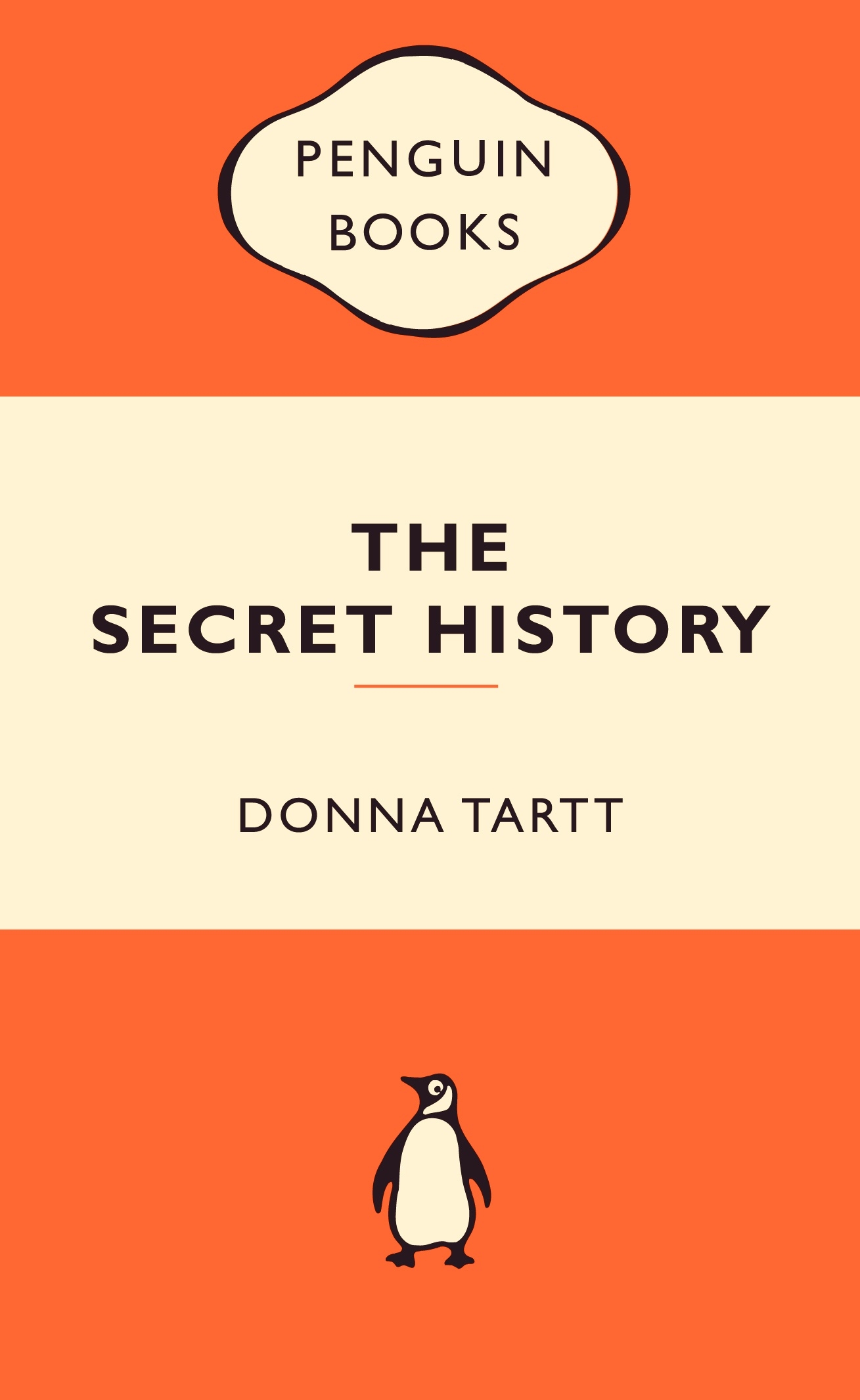So, i think i may have missed the seminar in which the relevance of The Secret History was discussed in class. If by some sad circumstance anyone is reading this and wishes to enlighten me as to why feel free to comment below. In the meantime I'm going to take a crack at it.
I was somewhat surprised when I sauntered into the Co-op to purchase the text. Sitting in the Lit-Nerd isle, occupying our units designated dumping bay, was a dwindling pile of Henry James novel's and quite a few copies of the above aforementioned text. I approached with mild apprehension. An exchange in my mind traversed as follows.....
".....it's an orange Penguin........i've never heard of Donna Tratt....wow.....i feel kind of stupid...yuppie ass reading list.......fml....."
I am usually quite familiar with books of the orange Penguin range for a few reasons:
1. I stalk bookstores like I stalk yer mum.
2. Lit-Major (this does not afford me the right to claim an obnoxious amount of literary knowledge, but enough that I would be familiar with most orange Penguin titles).
So I was somewhat dismayed, why had I never heard of Donna Tartt? "Google will surely inform me of her place within the literary world and all will be well again", I chortled.
What has just occurred here, I'm sure has academics championing Canon theory wetting themselves. My expectations of the novel, and the value that I have prematurely ascribe to the text has been informed by assumption that the Penguin classics range selects its texts according to the Canon. Albeit, the orange classics range is moving to incorporate more modern classics. What of this? How is the Canon derived, how are the values texts must posses determined, how is this phenomena changing in modern times? Fodder for next week I'm sure. However, this is could be an entirely far-fetched and pretentious assumption which neither Melissa or Sarah intended.
The novel itself centers around the literarily aware and their classically inspired and tragic ends. (As an aside, how utterly promising and inspiring! It beguiles me to no end how liberal arts students are perpetually depicted as self medicating cutters). The incorporation of classical Greek tragedy provides an interesting and ironic point of discussion in terms of its value as a 'modern' canonical text. Here we have a text which is very much enriched by the use of narrative techniques and tropes both valued and upheld in the Canon. Which begs the question, how do we determine if something is truly good at all? Take away the use of such techniques and the plot would disintegrate into something entirely different. Would it be that bad? Why do we value ennui and heart wrenching anguish over indifference? What happens if our characters were devoid of hamartia? Out of a bundle of like minded novels about dysfunctional New-Hampshire college kids, what makes The Secret History the novel that Penguin classics orange chooses as part of its series? Such matters of value tie into the readings next week and thus shall be discussed there. The novel does promote quite a fair bit of brow narrowing in such a respect, but it's a descent read. As a humanities/ languages student references to grammatical case and Greek philosophy are kinda shamefully nerd indulgent. It's also kinda creepy. Kinda emo.....and wtf was that ending?
- mia
P.S. New York Times Review of The Secret History here.


No comments:
Post a Comment